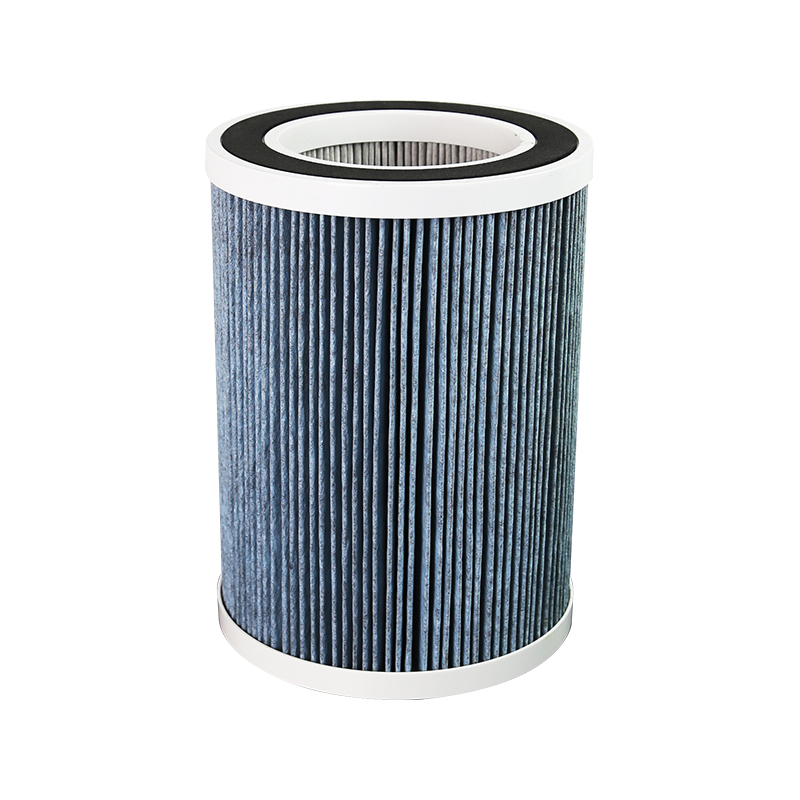From solutions to productions, we’re specialized in making the products you need.
News categories
Product categories
What factors affect the lifespan of a cylindrical filter and how often should it be replaced or cleaned?
The lifespan of a cylindrical filter is influenced by several factors, including the type of filter, the operating environment, the type of contaminants being filtered, and the maintenance practices employed. Understanding these factors can help determine how often a cylindrical filter should be replaced or cleaned to ensure optimal performance and cost-effectiveness.
Factors Affecting the Lifespan of a Cylindrical Filter: Material Composition: The material used in the filter media (e.g., stainless steel, polypropylene, fiberglass, nylon, activated carbon) significantly affects its durability. For instance, stainless steel filters are more robust and have a longer lifespan compared to filters made from synthetic fibers.Filter Media Type: Different types of filter media (e.g., pleated, sintered, mesh, perforated) have varying levels of durability and clogging resistance. Pleated filters typically offer greater surface area and longer life, while sintered filters provide high durability in harsh environments.Temperature and Pressure Conditions: High temperatures and pressures can degrade filter materials over time, particularly for filters made from plastics or non-metallic materials. Metal filters, like those made from stainless steel, are more resistant to such conditions but still need monitoring.Chemical Exposure: Filters used in environments with corrosive chemicals, acids, or alkalis may have a shorter lifespan if the filter material is not chemically resistant. Choosing a chemically compatible material is essential to extend the filter's life.
Contaminant Type and Load: Particle Size and Nature of Contaminants: The size, shape, and type of contaminants (e.g., dust, oil mist, bacteria, suspended solids) being filtered significantly impact the rate at which a filter clogs. Fine particles and sticky substances can clog filters faster, reducing their lifespan.Contaminant Load and Concentration: High concentrations of contaminants or continuous filtration of heavily polluted air or liquid will cause filters to clog more rapidly. In such cases, frequent cleaning or replacement is necessary.

Flow Rate and Pressure Drop: Flow Rate of the Filtrate: Higher flow rates can lead to increased pressure drop across the filter, accelerating wear and tear. Maintaining an optimal flow rate helps prolong the filter's life.Pressure Drop Management: As filters become clogged, the pressure drop across them increases, reducing system efficiency. Monitoring pressure drop is crucial to determine when a filter is nearing the end of its useful life.Filter Design and Configuration: Pleating and Surface Area: Filters with pleated designs typically have a larger surface area, allowing for better filtration and longer service intervals. Filters with more surface area tend to last longer because they can trap more contaminants before clogging.Filter Thickness and Density: Thicker filters or those with higher density media provide more filtration capacity but may require more frequent cleaning or replacement, depending on the application.
Maintenance Practices: Cleaning Methods and Frequency: Proper and regular cleaning can significantly extend the lifespan of cylindrical filters. However, over-cleaning or using harsh cleaning methods (e.g., high-pressure washing, abrasive scrubbing) can damage the filter media and reduce its effectiveness.Replacement Practices: Consistent and timely replacement based on monitoring data (e.g., pressure drop, flow rate, visual inspection) ensures optimal system performance and filter lifespan.Installation and Handling: Correct Installation: Improper installation can lead to bypassing or uneven loading of the filter media, resulting in premature clogging or damage. Ensuring that filters are installed correctly is vital for their longevity.Handling During Maintenance: Careful handling during installation, cleaning, and replacement prevents mechanical damage to the filter media, which can shorten its lifespan.
Are ozone air filters safe to use in occupied spaces?
How are box HEPA filters tested and certified for safety and effectiveness?
related products
Copyright 2023 Nantong Henka Environment Solutions Co.,Ltd. All Rights Reserved


 English
English русский
русский Español
Español 简体中文
简体中文

























